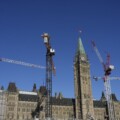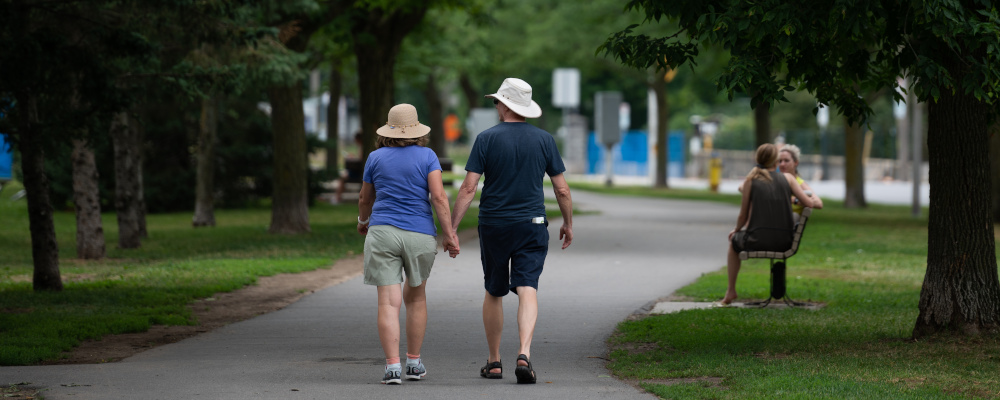So long, carbon tax. Hello, urban planning.
Government policymaking is messy. It often involves a mess of compromises that lead to marginally effective policies, or worse. It’s not often governments identify a high-profile problem and implement the textbook economic solution without compromises. That’s what made Canada’s carbon tax so surprising. If you put ten randomly selected economists in a room and told them to reduce carbon emissions, they would have come up with something very close to Canada’s carbon tax. We had the textbook solution. Unfortunately, the textbook just went out the window.
The Trudeau government’s decision to exempt home heating oil from the carbon tax is perhaps the most notable departure from the carbon tax. The carbon tax will still remain in force, but the credibility of the policy is in question. After all, if they’re willing to make exceptions to carbon pricing now, it’s easy to envision them deciding to temper future increases steep enough to ratchet down carbon emissions. And, of course, it might not survive a change of government. As one of Canada’s foremost proponents of carbon pricing, Andrew Leach, noted, “We’re probably into the regulation and industrial policy era now.”
Now, I don’t know precisely what this new era will look like. I suspect that, like Alberta, the federal government will decide to keep carbon taxes on large emitters even if there’s a change of government. But it doesn’t seem that even the Liberals are willing to rely on carbon taxes as the primary method of reducing household greenhouse gas emissions.
My suggestion for policymakers looking for a path forward: focus on better urban planning. Where people live and how they get around are some of the most consequential decisions when it comes to greenhouse gases. If we want people to pollute less in their day-to-day lives, we should build more traditional, walkable neighbourhoods—the kind of neighbourhoods this country was built on. Thanks to one-size-fits-all urban planning, precious few of those neighbourhoods exist today.
I want you to think about some of the older neighbourhoods in your city. The places where young people want to move, but can’t afford to. Every city has got a few. Kitsilano, West Queen West, Kensington, Osborne Village, Centretown, Schmidtville, and so on. What do they have in common? Each of them has a diversity of housing types—townhouses, duplexes, walk-up apartments. Most day-to-day amenities are within walking distance, and there are plenty of shops and restaurants and some entertainment options nearby.
There are also a number of transportation choices ranging from bike lanes to car lanes. Urbanists love to wax poetic about these neighbourhoods, but there’s nothing fundamentally special about them. They’re just the type of normal, full-service communities that we built since the dawn of human settlement. That is, until modern zoning codes came along and made this type of development illegal in most places.
Illegal might seem like a strong word. But most Canadian communities were only zoned for detached houses. That means that once you’ve filled it with detached houses, there was no way to add more housing. So they lost rather than gained population. Only the most affluent Canadians can afford to live in these once-working-class neighbourhoods.
Since we haven’t been able to build additional housing units in most high-amenity urban neighbourhoods, people have had to move further and further out to communities that are harder to service with transit. This has meant that many of the households that are least able to pay for cars are entirely dependent on them. Faced with declining affordability and worsening commutes, they could use more housing and transportation options.
Looking forward, any government that is serious about decarbonization is going to have to allow more traditional, walkable communities to be built. That doesn’t just mean in Downtown Toronto or Vancouver. We also need to make it easier for people in smaller cities to get around without a car or, at the very least, to be able to commute to work without sitting in traffic.
The federal government has started to do its part, using the Housing Accelerator Fund (HAF) to convince municipalities to legalize more housing options. But that’s really setting a baseline. We need big cities to do more than the bare minimum. The basic standard for the HAF appears to be four units on a single lot as of right (e.g. no rezoning required). That’s a very good start for a city like London or Kelowna. It’s not enough for big cities in the GTA. Edmonton recently voted to allow eight units as of right. That’s a serious approach if we want to open up lower-carbon living to more people. We also need to build more pockets of high-density outside of major cities. A few downtown cores won’t be able to accommodate all of the country’s growth, after all.
We also need to end our obsession with separating uses. In other words, creating a neat division between commercial and residential uses. Zoning was initially premised on keeping polluting factories out of residential neighbourhoods. That’s a valid goal. But it’s not the 1950s anymore. Smoke-spewing factories are not the default employer anymore. Mixing commercial, retail, and residential uses creates great communities. There are attempts to rebuild this type of community, usually surrounding transit stations, but it should be the default rather than the exception. There’s no reason why someone in a cul-de-sac should be forced by the zoning code to hop in his car to get a loaf of bread or grab a coffee.

Of course, not everyone is going to live in Toronto or Vancouver. Nor should they. Within the GTA, Lower Mainland, and other large urban areas, there are many municipalities big and small. Even in an era of flexible work, a lot of people in those communities have to commute to the office a few times a week. In many cases that means they’re spending an hour or more in traffic every day. Unless we give commuters more people alternatives to driving, we’re just going to keep funneling more and more cars into our downtown cores, worsening traffic congestion and vehicle emissions. The only thing we can really do (other than charging tolls or congestion fees, which are even less popular than the carbon tax) is give people more options to avoid traffic.
Fortunately, there’s movement on this file as well—particularly in the GTA. People might not intuitively associate Doug Ford with public transit, but his government is funding and overseeing big buildouts of transportation not only in cities but also between cities. The Ontario Line and Scarborough subways in Toronto are the two highest profile examples, but there are also several LRT lines both in Toronto and other GTAH cities such as Mississauga that are in progress. That will make it easier to build the type of walkable neighbourhoods that are in such short supply.
Then there’s the GO Transit buildout. As Metrolinx adds new lines and increased frequency, it’s getting easier for people commuting into Toronto to bypass traffic. That will also help decarbonize the GTAH economy both by requiring less emissions per passenger and also by avoiding adding more cars into the regional traffic jam. You can already see some people’s transportation decisions change as the GO buildout progresses. We need to do more, and faster.
Now, I’m not saying that better urban planning is a perfect substitute for carbon taxes. Far from it. I’m a free market guy. If it was up to me, we’d just tax externalities and let the market sort things out. That’s not the political world we live in. Fortunately, there are many ways to reduce greenhouse gasses. Better urban planning is the low-hanging fruit. We should pick it.
Recommended for You

The Notebook by Theo Argitis: Carney’s One Big Beautiful Tax Cut, and fresh budget lessons from the U.K.

Christopher Snook: Is Canada sleepwalking into dystopia?

Rudyard Griffiths and Sean Speer: The fiscal hangover from the One Big Beautiful Bill hits Canada

‘A fiscal headache for Mark Carney’: The Roundtable on how Trump’s One Big Beautiful Bill could affect Canada



